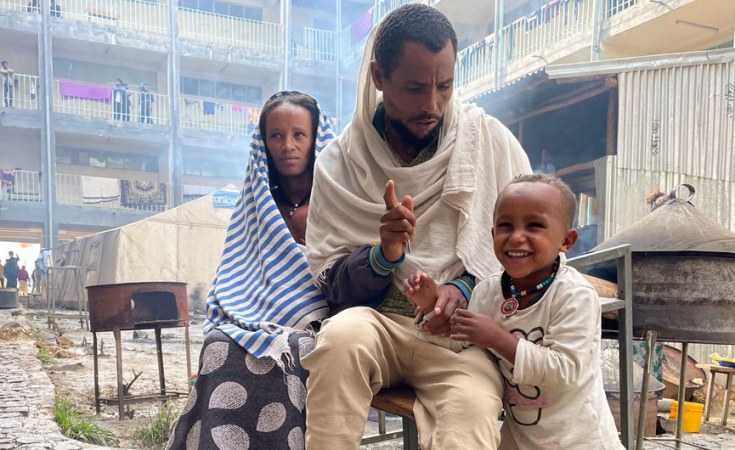Addis Abeba — The poignant testimony of Desta, a 24-year-old midwife who has been volunteering for over a year to help women and children in her region, Tigray.
At the Adikeyh health center, the largest in the Wejeret woreda, the maternity ward receives many pregnant women every week for deliveries or pre- and post-natal consultations.
"On average, we deliver five to seven babies every week," says Desta, a midwife at the health center. "This little boy was born today. He is doing well but as you can see he is quite thin. He weighs only 2.3 kg. As we don't have enough equipment, we use other techniques to help women and children. For low birth weight under 2.5kg for example, we recommend them to practice Kangaroo Mother Care."
Kangaroo Mother Care is an approach that uses skin-to-skin contact to help premature babies by wrapping them in a cloth next to their mother's skin, mimicking the kangaroo pouch. This method has many benefits and has been shown to significantly increase survival rates.
At the same time, health facilities are faced with a shortage of antigenic lifesaving vaccines in the region, which exposes newborns to childhood diseases and an increase in the number of malnourished women. With a prevalence of almost 70 per cent, this is one of the highest rates in the region.
"In recent months they have lost a lot of weight due to food insecurity and inflation as a result of the conflict in the region," says Desta. "Most of the pregnant and lactating women are very weak when they come to the center. Sometimes they have walked several kilometres because they cannot afford the transport. You can see how malnourished they are. It's very worrying and of course it has repercussions on the delivery and the child's health."
Despite the logistical challenges in the region, UNICEF is working to help women and children, as UNICEF Nutrition Specialist Yoseph Teklu explains: "Our priority is to detect the early signs of malnutrition in pregnant and lactating women, and in children under five. The stakes are high because we know that maternal malnutrition contributes to maternal death, still-birth, congenital malformations, neonatal death and low-birth weight which in turn contributes to stunting. This is why we initiated a regional 'Find and Treat Campaign' in April and May of this year that focused on detecting and treating severely malnourished children and providing supplementation of micro-nutrients. To date, we have screened more than 700,000 children aged 6 to 59 months and treated more than 25,000 children suffering from severe acute malnutrition."
The situation has not only led to difficulties in the supply of medical provisions but has also led health workers to appeal to the generosity of their families and communities.
"I started working in 2020 after finishing my studies," explains Desta. "I have been through the coronavirus pandemic and then the conflict in the region. Since then, we (medical staff) have not been paid. I have to rely on the generosity of my loved ones but sometimes I have no choice but to skip meals. I still come every day because I love the people, because this is my community, and it is my commitment to help them."
With financial support from USAID, UNICEF teams have been working tirelessly since the beginning of the conflict in Northern Ethiopia to help health workers by providing medical supplies, medicines, therapeutic milk and ready-to-use therapeutic food to health facilities. Last May, 80 tons of health supplies and 40 tons of nutrition supplies were delivered to the Tigray region to help the population. UNICEF/


